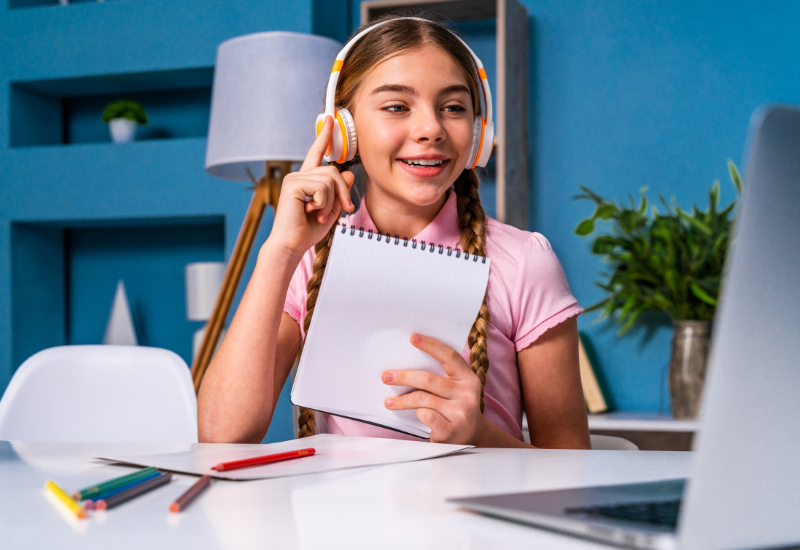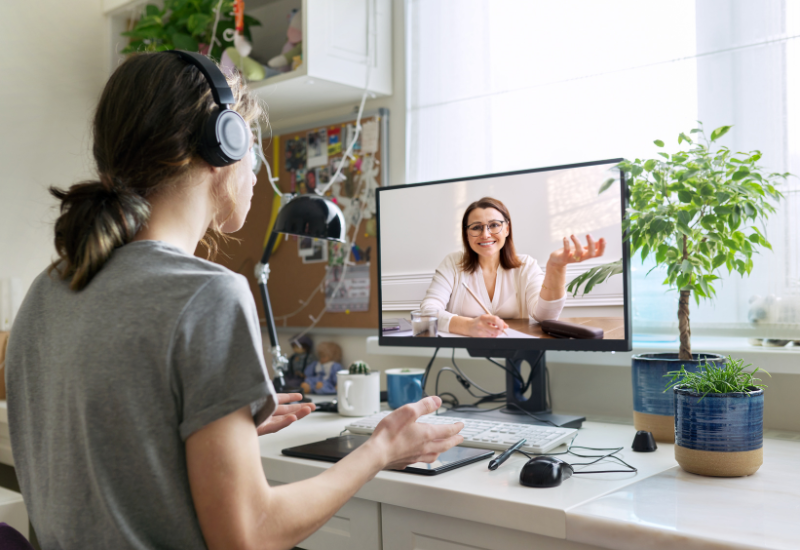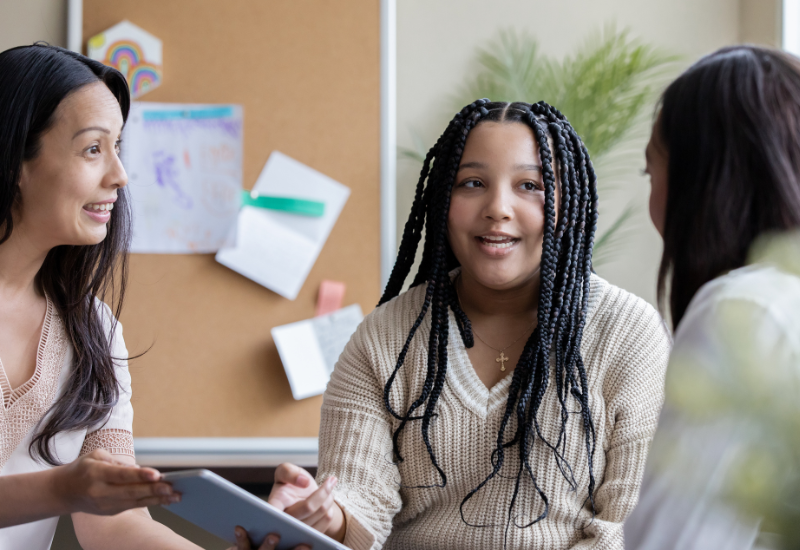Peer Grading at LPS Richmond
Sophia Thomas, teacher, explains how peer grading is used as a strategy to deepen learning. Students use a rubric to grade their own and others' work.

Transcript:
Interviewer: Can you talk about grading? I noticed that students can grade their own, then peer grade, then you.
Teacher (Sophia Thomas): Yeah. That's for the note taking and the writing task. As I did with how to set your weekly goals, when we started out, we modeled that. First, there was a whole lesson on the different categories in the rubric and what it meant. There was another lesson where we looked at two exemplars for a writing task. I went through and graded the writing task under the dot cam. Then I made comments manually. Then there was a screencast video that showed them how to do that online. It showed how to make a copy of the document, how to comment, how to share it with each other. Watch the _____, and if you're commenting, how you should use the language of the rubric to comment on your peer's product. Also, how to use the language after rubric to determine what score do they actually deserve. I wouldn't say they're perfect at it but sometimes it's really cool to see the kind of comment that they're leaving on each other's document. The other thing about that is it forces at least another person to see your product and engage with you about that. They may have questions. What do you mean by this? It makes you be a little bit more reflective about the kind of product that you're producing.
Explore More

P-CCS' Approach to Student-Centered Virtual Learning
Through their participation in TLA's Strategy Lab: Virtual & Hybrid program, Plymouth-Canton Community Schools' Virtual Academy designed...

Increasing Engagement and Work Completion Through Advising and Mentoring (KIPP DC)
Through their participation in TLA's Strategy Lab: Virtual & Hybrid program, KIPP DC designed and piloted a program to help teachers...

Analyzing Real-Time Data for Student Advocacy
Conducting frequent data checks can help educators examine student learning in real time and provide powerful data for advocating for...